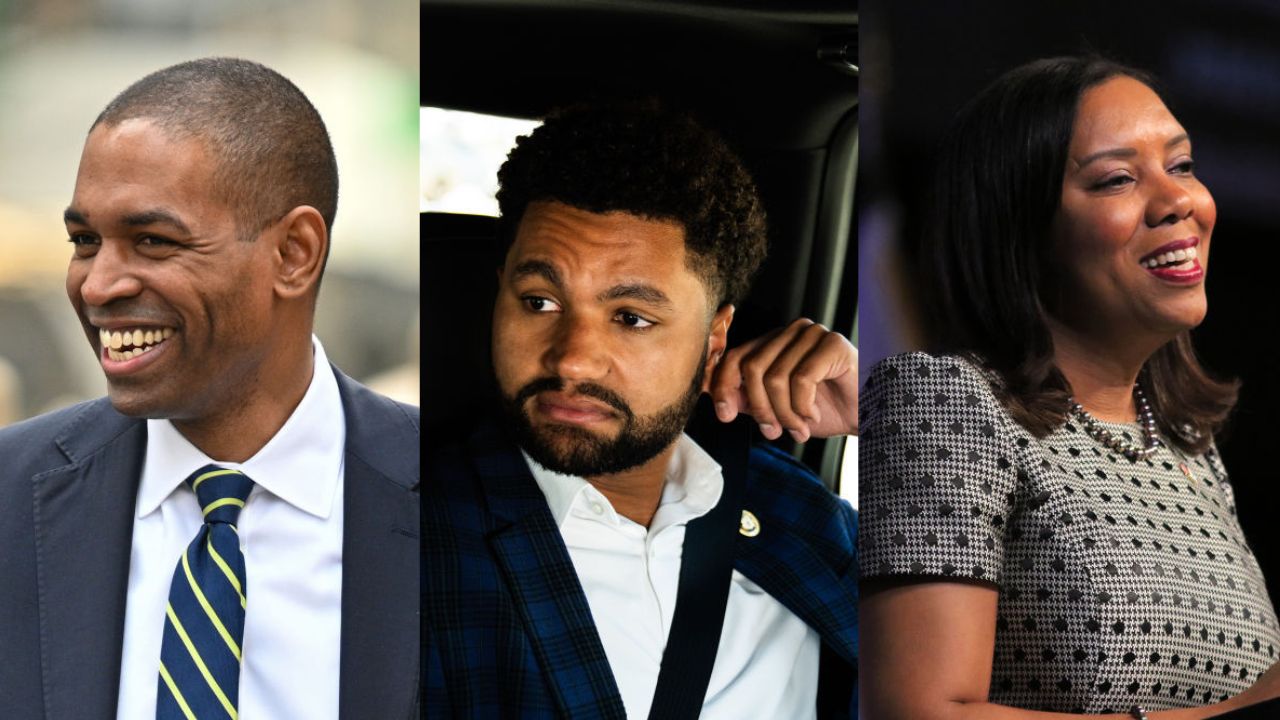
Latinx Heritage Month, or National Hispanic Heritage Month, concludes on Tuesday. This month-long celebration, from Sept. 15 to Oct. 15, honors the history, culture and contributions of people of Latin American descent. It also emphasizes the significant impact that Latinx individuals have made on U.S. society in various fields, including politics, the arts, education, business and civil rights.
According to a 2022 Pew Research report, approximately 6 million U.S. adults identify as Afro-Latino, representing about 2% of the U.S. adult population and 12% of the adult Latino population. Notably, about 1 in 7 Afro-Latinos — approximately 800,000 adults — do not identify as Hispanic. However, some unapologetically embrace their Blackness.
This year’s celebration would be incomplete without recognizing eight pioneering Afro-Latinos who proudly embraced their African roots and significantly shaped politics and activism for Black and brown communities in the U.S. and Latin America.
Victoria Santa Cruz
Victoria Santa Cruz, born on Oct. 27, 1922, in Lima, Peru, was an influential Afro Peruvian choreographer, composer, activist and poet. Inspired by her culturally rich upbringing, she fought against racial and cultural marginalization through her performances and teachings. Her renowned 1978 poem “Me Gritaron ‘¡Negra!’” (“They Yelled at Me, Black!”) reflected her experiences with racism, promoting pride in Afro Peruvian identity. In 1982, she became the first Black woman to hold a tenured professorship at the Carnegie Mellon School of Drama. Cruz died on Aug. 30, 2014, leaving a lasting legacy in Afro Peruvian and Black culture.
Felipe Luciano
Philip “Felipe” Luciano, born in 1947 in East Harlem, New York, co-founded The Last Poets in 1968, blending jazz, hip-hop and spoken word to address African American civil rights and Black nationalism. In 1969, he co-founded the New York chapter of the Young Lords, advocating for Puerto Rican rights and social justice. After leaving the Young Lords, Luciano transitioned to radio, hosted programs featuring prominent salsa legends and became the first Puerto Rican news anchor at a major news outlet. Today, the Emmy-winning journalist and activist continues to advocate for Latinx equity.
Yvette Modestin
Yvette Modestin, a writer, poet and activist from Colón, Panama, is the founder of Encuentro Diaspora Afro in Boston and one of the 30 Most Influential Afro-Latinas. She coordinates the Red de Mujeres Afrolatinoamericanas at the United Nations and African Union and has received the Fundacion Bayano and Drylongso Awards for her anti-racism efforts. Modestin has contributed to Women Warriors of the Afro Latina Diaspora and The Afro Latin@ Reader while advocating for healing in the Afro-descendant community as a mental health clinician.
Arturo Alfonso Schomburg
Arturo Alfonso Schomburg, born on Jan. 24, 1874, in Santurce, Puerto Rico, was the son of a German-descended Puerto Rican merchant and an Afro Caribbean woman from the Danish West Indies. After studying in Puerto Rico and the Danish Virgin Islands (now the U.S. Virgin Islands), he immigrated to New York City at 17. A key figure in the Harlem Renaissance, his extensive collection of books and artifacts formed the basis of the Schomburg Center for Research in Black Culture, continuing to inspire racial justice and Black empowerment through education long after he died in 1938.
Grace Diaz
Rep. Grace Diaz, D-R.I., born on Feb. 21, 1957, in the Dominican Republic, is a Rhode Island State Assemblymember representing the 11th District. She advocates for social issues such as education, healthcare, housing and immigrant rights, actively promoting legislation that enhances equity and access for underserved communities. As the first Latina elected to state office in U.S. history, Diaz breaks barriers for representation and empowerment, with her strong commitment to community engagement and public service shaping her legislative priorities.
Maxwell Alejandro Frost
Rep. Maxwell Alejandro Frost, D-Fla., is an American politician and activist, serving Florida’s 10th Congressional District since 2023. Born on Jan. 17, 1997, in Orlando, he has a diverse heritage with Puerto Rican, Lebanese and Haitian roots. At 25, he became the first Gen Z member of Congress. Frost advocates for progressive issues, including gun control, abortion rights and social justice and previously gained national attention as a grassroots organizer.
Sabina Matos
Rhode Island Lt. Gov. Sabina Matos, born on Feb. 13, 1974, in the province of Barahona in the Dominican Republic, moved to the United States in April 1994. The Democrat became the 70th lieutenant governor of Rhode Island on April 14, 2021, and was elected in November 2022. Matos is the second woman, the first woman of color and the first Dominican American to hold this position in the U.S. Matos chairs several councils, including the Emergency Management Advisory Council, and advocates for social causes like affordable housing, diversity, equity and inclusion and veterans. Previously, Matos served on the Providence City Council, where she was the first Latina to hold the position of Council President.
Antonio Delgado
New York Lt. Gov. Antonio Delgado was born on Jan. 28, 1977, in Schenectady, New York, and resides in Rhinebeck with his wife, Lacey, and their twin sons. Raised by General Electric employees, Delgado embodies hard work and community commitment. He has boldly stated his identity as African American and Cape Verdean, with a grandfather who has roots in Mexico, Venezuela and Colombia. Before becoming New York’s first Afro-Latino elected lieutenant governor in Democratic Gov. Kathy Hochul’s administration, Delgado worked in the music industry and as an attorney. In Congress, he was the first person of color to represent upstate New York, focusing on healthcare access, criminal justice reform and economic development while achieving significant bipartisan legislative accomplishments.


